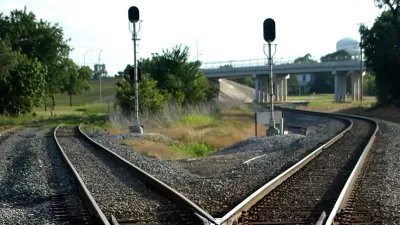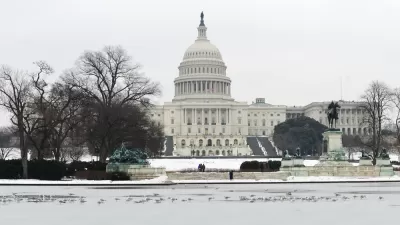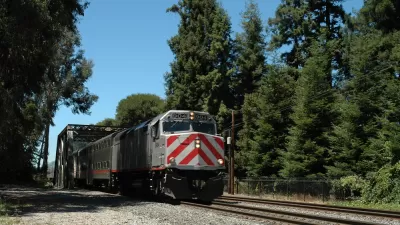Henry Grabar argues that the United States has already too many roads, and the burden of maintenance costs and the sprawl encouraged by road-building should make new roads and bridges the country's last priority.

National politicians on both sides of the political spectrum have come out in favor of an infrastructure bill to build more roads and bridges. Meanwhile, some worry that more roads mean more cars, more sprawl and more maintenance. "Gravel is good. It’s cheaper than concrete and often has lower maintenance costs," Henry Grabar argues in Slate.
Garbar argues that the president's proposed infrastructure legislation, if it ever gets written, might sound like a bit of bi-partisan relief from a the contentious times the country is experiencing, but that new roads would not put the country in a better place. He says the United States is in, "…an unprecedented maintenance crisis, in addition to facilitating sprawl, harming the environment, undermining Main Street commerce, and draining local budgets." Not only because politicians are not adequately taking care of the roads they already have, but also because, "In and around cities, road mileage has grown at exactly twice the rate of population," Garbar writes.
FULL STORY: No More Roads

Alabama: Trump Terminates Settlements for Black Communities Harmed By Raw Sewage
Trump deemed the landmark civil rights agreement “illegal DEI and environmental justice policy.”

Study: Maui’s Plan to Convert Vacation Rentals to Long-Term Housing Could Cause Nearly $1 Billion Economic Loss
The plan would reduce visitor accommodation by 25% resulting in 1,900 jobs lost.

Planetizen Federal Action Tracker
A weekly monitor of how Trump’s orders and actions are impacting planners and planning in America.

Wind Energy on the Rise Despite Federal Policy Reversal
The Trump administration is revoking federal support for renewable energy, but demand for new projects continues unabated.

Passengers Flock to Caltrain After Electrification
The new electric trains are running faster and more reliably, leading to strong ridership growth on the Bay Area rail system.

Texas Churches Rally Behind ‘Yes in God’s Back Yard’ Legislation
Religious leaders want the state to reduce zoning regulations to streamline leasing church-owned land to housing developers.
Urban Design for Planners 1: Software Tools
This six-course series explores essential urban design concepts using open source software and equips planners with the tools they need to participate fully in the urban design process.
Planning for Universal Design
Learn the tools for implementing Universal Design in planning regulations.
Caltrans
Smith Gee Studio
Institute for Housing and Urban Development Studies (IHS)
City of Grandview
Harvard GSD Executive Education
Toledo-Lucas County Plan Commissions
Salt Lake City
NYU Wagner Graduate School of Public Service





























